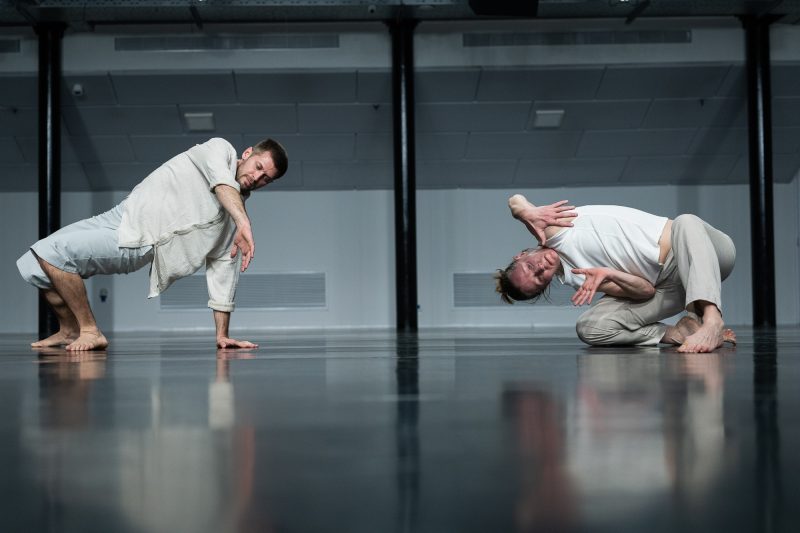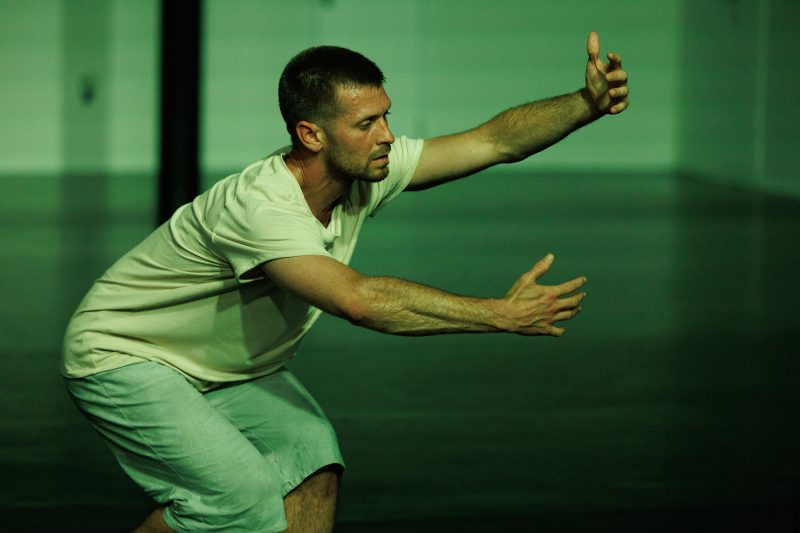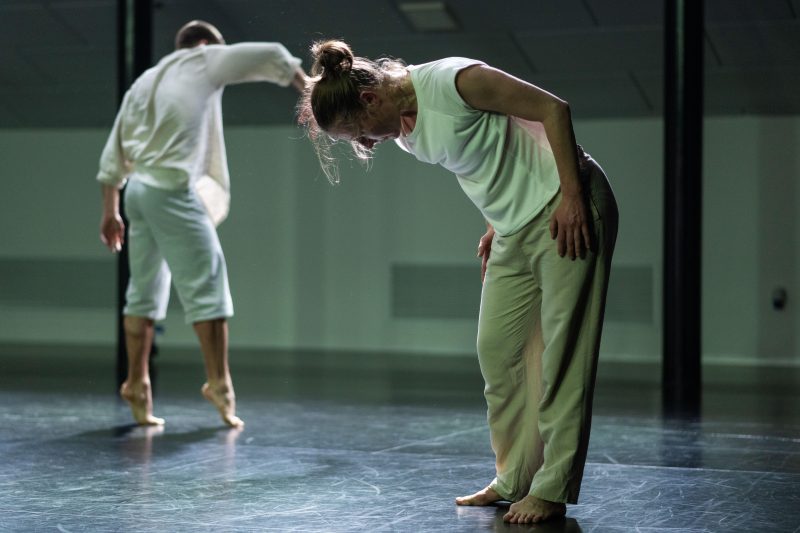An essential aspect of being a dancer is learning movements, memorizing them, and being able to reproduce them convincingly time and time again. In her performance Presencia, choreographer May Zarhy explores the idea that ingraining a choreography is inherently intertwined with personal memories, whether they be memories of other works or of experiences from daily life. Collaborating with her dancers, Brit Rodemund and Dominic Santia, Zarhy looks at the personal significance of movements and how this meaning shapes the unfolding narrative on the stage.
Visible memory
Zarhy created a duet for and with her dancers, centered around the theme of touch. Intriguingly, she later chose to eliminate these touches, challenging the dancers to flawlessly reproduce the exact movements without physical contact. Her objective was to make memories visible. To enhance this capability, the dancers underwent pantomime lessons. Zarhy's focus extended beyond the personal connections and ideas that emerged for Brit and Dominic; she also worked on developing gestures with a universal understanding, ensuring clarity for the audience.
Profound listening
Presencia is featured in our festival after being selected during the Pitching Project, an opportunity for young Israeli and Palestinian creators. Zarhy earned her dance bachelor's degree from Codarts Rotterdam in 2006, and after an internship with The Forsythe Company, she toured with Ioannis Mandafounis and Fabrice Mazliah – who she had met at Forsythe – in a trio collective under the name Mamaza, which performed in theaters worldwide. Since 2014, Zarhy has been creating her own productions, often staged not only on traditional platforms but also in public spaces. Similar to her previous works, Presencia reflects on the tension between the concrete and the abstract, between functional, everyday movements, and those typically labeled as dance. Above all, the performance is an exploration of how personal feelings can be shared with the audience and emphasizes the importance of profound listening, enabling, as Zarhy describes it, "the sharing of intimacy among us".





